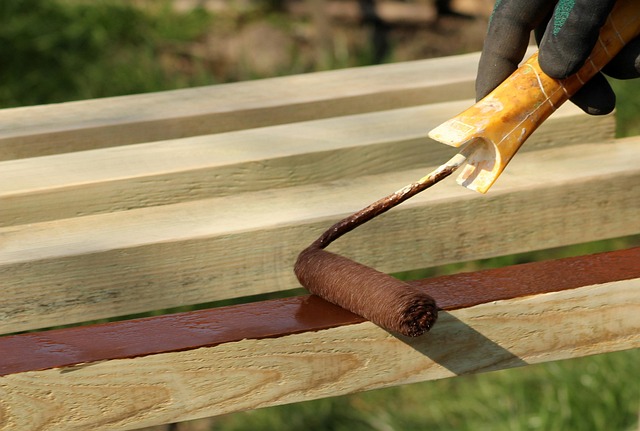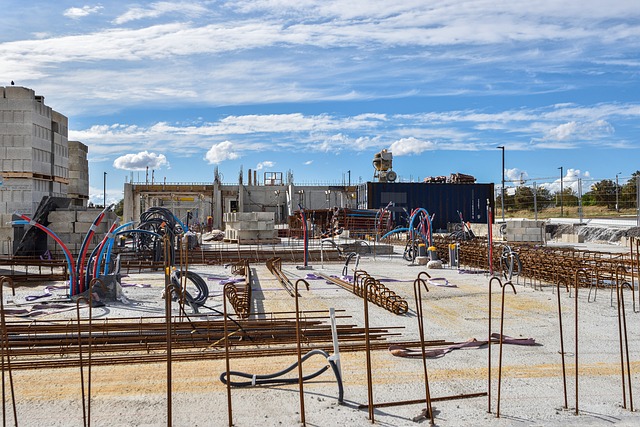Foundation inspection reports are crucial tools for homeowners, offering a detailed assessment of their property's structural health, especially in identifying and addressing residential foundation repair needs. These reports analyze cracks, water damage, and uneven floors, providing insights that enable informed decision-making. By understanding these reports, homeowners can promptly navigate and rectify foundation issues, preserving property value and ensuring safety. Regular inspections are key to early problem detection, preventing costly future renovations and safeguarding investments. A comprehensive foundation inspection report is essential for planning residential foundation repair, offering detailed analysis of the underground support system and potential moisture issues. Homeowners should pay close attention to crack descriptions, recommendations, and common issues like wall cracks, uneven floors, and water intrusion. Choosing a reputable residential foundation repair company with proven expertise and modern technology is crucial for successful outcomes. Proactive maintenance, including regular inspections and repairs, can prevent costly future repairs and enhance the structural integrity of the home.
A solid foundation is the cornerstone of any home, and ensuring its integrity is crucial. Foundation inspection reports provide a detailed overview of your home’s underside, offering insights into its structural soundness. This comprehensive guide delves into the world of these reports, educating homeowners on their significance in residential foundation repair. From understanding key components to interpreting data, we explore what these inspections reveal and how to ensure your home’s foundation remains strong, addressing common issues and offering expert advice for preparation and company selection.
Understanding Foundation Inspection Reports: A Comprehensive Guide

Foundation inspection reports are crucial documents for homeowners, providing a detailed analysis of their property’s structural integrity, especially focusing on residential foundation repair needs. These reports offer a comprehensive overview, enabling owners to make informed decisions about potential issues and necessary actions. By understanding the intricacies of these reports, homeowners can effectively navigate the process of assessing and addressing foundation-related problems.
A typical inspection involves a thorough examination of various elements, including cracks in walls or foundations, uneven floors, and signs of water damage. Inspectors use advanced tools and techniques to identify even the subtlest indications of distress in a structure’s foundation. The report then summarizes these findings, often accompanied by recommendations for repair or remediation, ensuring that any issues are addressed promptly to prevent further complications, thus maintaining the value and safety of residential properties.
The Importance of Residential Foundation Repair

A strong and stable foundation is the backbone of any residential property, and its importance cannot be overstated, especially in terms of Residential Foundation Repair. A well-maintained foundation ensures the safety and longevity of a home, providing a solid base for its structural integrity. Regular inspections are key to identifying potential issues early on, allowing for prompt action and cost-effective repairs.
When it comes to Residential Foundation Repair, addressing problems at their root can prevent further damage and costly renovations in the future. Whether it’s cracks in the concrete, uneven floors, or signs of water damage, timely intervention can save homeowners from significant financial burdens. By investing in professional foundation repair services, residents can protect their properties’ value and create a safe living environment for years to come.
Key Components of a Foundation Inspection Report

A comprehensive foundation inspection report is an invaluable tool for homeowners, especially when considering residential foundation repair. These reports provide a detailed analysis of a home’s underground support system, offering insights into its overall structural integrity. Key components include a thorough examination of the foundation’s type, age, and any visible signs of damage or settlement.
Inspectors should document the condition of the footings and walls, noting cracks, bowing, or other abnormalities. The report must also assess the surrounding soil conditions and drainage, as these factors significantly impact the foundation’s stability. Additionally, identifying potential moisture issues, such as water intrusion or high water tables, is crucial for predicting and preventing future problems in residential foundation repair.
Interpreting the Data: What to Look for in the Report

When reviewing a foundation inspection report, whether for a residential property or commercial building, understanding the data presented is key to identifying potential issues with your structure’s foundation. These reports provide valuable insights into the health and stability of the foundation, which is crucial for any owner considering a residential foundation repair.
Look for detailed descriptions of any observed cracks in the foundation walls, floor slabs, or basement floors. Note the width and direction of these cracks as they can indicate different types of movement and potential causes, such as settling or soil expansion. Additionally, pay attention to recommendations for further investigation or remediation, as these will guide you towards necessary actions for a stable and safe structure.
Common Issues Found During Foundation Inspections

During foundation inspections, several common issues are often discovered across various residential properties. One of the most prevalent problems is cracks in the foundation walls, which can range from hairline fractures to larger, structural breaks. These cracks may be a result of settlement, soil movement, or poor construction practices and indicate potential instability in the structure. Another frequent concern is uneven floors, where gaps or dips are noticeable, suggesting issues with the load-bearing capacity of the foundation.
Additionally, inspectors frequently find problems related to water intrusion, such as moisture damage, mold growth, or leaking pipes, which can compromise the integrity of the foundation and lead to further structural complications. Poor drainage around the property is also a common issue, as it contributes to water accumulation near the foundation, accelerating deterioration. Identifying these issues early through comprehensive foundation inspections is crucial for homeowners to address them promptly, preventing more costly residential foundation repair in the future.
How to Prepare for Your Foundation Inspection

Preparing for your foundation inspection is a crucial step in understanding the health of your home’s structural base. Before the experts arrive, there are several tasks to complete to ensure a comprehensive evaluation. Start by clearing any debris or obstructions around the foundation, providing easy access for inspectors. This includes removing trees, bushes, or other large plants that might interfere with their examination.
Additionally, ensure all exterior lights are functional, especially those close to the foundation. Good lighting will facilitate a thorough inspection and help identify potential issues. It’s also beneficial to document any known problems or recent repairs related to your residential foundation repair. Gather photos or reports from previous assessments to provide valuable context for the inspectors.
Choosing the Right Foundation Repair Company

When it comes to foundation repair, selecting the right company is paramount for ensuring a successful outcome. In the realm of residential foundation repair, there are numerous contractors vying for your business, each promising top-notch service. However, not all companies are created equal. As such, homeowners should approach this decision with careful consideration and thorough research.
The ideal foundation repair company should possess a proven track record, expertise in various repair techniques specific to your area’s soil conditions, and the use of modern technology for accurate assessments and efficient repairs. Additionally, they must be licensed, insured, and bonded to protect you from potential liabilities and ensure the safety of their work. Reputable companies also offer guarantees on their labor and materials, demonstrating confidence in the quality of their services.
Maintaining Your Home's Foundation: Post-Inspection Steps

After receiving your foundation inspection report, it’s crucial to take proactive steps to maintain and preserve your home’s structural integrity. The first step involves addressing any identified issues highlighted in the report, especially those related to residential foundation repair. This may include fixing cracks, stabilising settling foundations, or reinforcing weak spots to prevent further damage.
Regular maintenance is key; schedule routine inspections and repairs to catch potential problems early on. Ensuring proper drainage around your home, managing moisture levels, and preventing excessive soil movement near the foundation can significantly contribute to long-term stability. These measures will not only enhance the structural health of your residence but also help avoid costly repairs in the future, thereby saving you from unexpected expenses associated with residential foundation repair.
